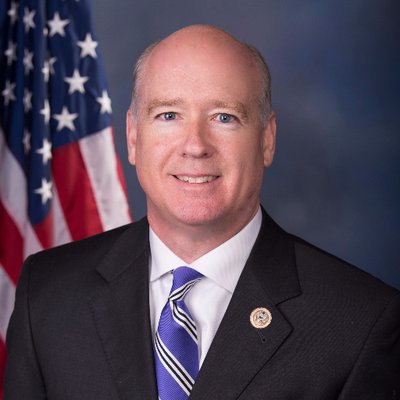Bibb County and Alabama has a growing problem. Every day we depend more and more on access to the internet to conduct all manner of business. We all know that modern industries depend on the internet to conduct their business.

Without blazing fast internet service the growth and expansion of automotive and tech related industries in areas of Bibb County South of Vance and McCalla will never happen. Derek Reeves, Industrial Development Coordinator for Bibb County and Administrator for the Bibb County Commission is antagonizingly familiar with the lack of adequate high speed broadband services in Bibb County. According to Reeves, when industries are searching for industrial sites they have a site pre-selection checklist. At the top of every checklist a must have for industrial site searches includes access to high speed broadband internet services and airports with not less than 5,000 foot lighted runways and instrument approaches. While there are currently improvements underway at the Bibb County Airport, there are no known projects presently in the works to improve broadband speed and to broaden business and home user accessibility in Bibb County.
Schools depend on the internet for access to teaching materials. Students depend on the internet to access their homework assignments, conduct their research, complete their homework, register for school, and look for a job. The Bibb County school system does have access to a high speed internet connection so students, staff, and faculty are able to connect while on campus and take advantage of quality internet service.

According to John Simmer, BCHS School Technology Coordinator, “the CAFT Program also makes available after school internet access and tutoring for high school students.” According to John, “a high percentage of the student population may not have internet service, or even a computer, at their home, especially if they live in a rural area so this is one of the reasons for the after hours program at the high school.”
 Tracy Griffin, Librarian at the Brent-Centreville Public Library, stated that she sees anywhere from 50-100 people per week coming in to the library to use public computers for internet access. “Most of these people are using computers at the library because they have no home internet access or they have no ability to print documents at home.”
Tracy Griffin, Librarian at the Brent-Centreville Public Library, stated that she sees anywhere from 50-100 people per week coming in to the library to use public computers for internet access. “Most of these people are using computers at the library because they have no home internet access or they have no ability to print documents at home.”
“Most employed people these days receive their weekly pay by direct deposit. They get their pay stub or their pay record by e-mail or by electronic access to their employer’s Human Resources department”, said Griffin. At the end of a year they have to go online to get their annual earnings information so they can file their tax returns. Many employers no longer mail W-2’s or 1099’s to the taxpayer so access to an online computer and printer is essential. Also, most of the work to search for and then apply for a job must be done online.

Recently, Anne Hazlett, assistant to the Secretary for Rural Development at the U.S. Department of Agriculture joined U.S. Rep. Robert Aderholt, R-Haleyville, and other Alabama political heavyweights at Lake Guntersville State Park to meet with leaders of rural communities and learn more about their needs and how they can solve the problem.
While a world without the internet might be impossible to imagine, it’s not for more than 20 million Americans, Hazlett said. “We think about kids that are living in small towns these days,” Hazlett said. “I’ve traveled to 38 states in the 16 months I’ve been on this job and the number of stories I hear of children who are doing homework in a McDonald’s parking lot is staggering. “For those kids to be able to do homework – whether at McDonald’s or at all – that connectivity is needed.”
A world without internet? It exists in Alabama for some.

“The lack of online connectivity ripples beyond school children. It affects commerce, it affects economies, it affects health care, it affects … well, imagine the everything in your daily life that requires the internet.”
“When it comes to our children and their education, when it comes to telemedicine, when it comes to taking care of our seniors, when it comes to enhancing the farmers of this state and their productivity, all of these things connect us through broadband initiatives,” Alabama Speaker of the House Mac McCutcheon, R-Monrovia, said.
“And it’s by enhancing this that we’re able to move our state forward in the sense of economic growth. We’re very supportive and we’re on board.”
“It is the infrastructure challenge of our day and the quicker we recognize that as a nation and as a state, the better off we’re going to be,” according to state Sen. Clay Scofield, R-Guntersville.

He’s a farmer by trade and his north Alabama district includes miles of small, rural communities.
Scofield sponsored a bipartisan bill passed by the legislature and signed into law by Gov. Kay Ivey earlier this year that essentially extends a hand from Alabama to federal assistance to solve the connectivity crisis. It makes $7.5 million available for grants for companies seeking to expand broadband into rural areas.

“It’s yet another step forward to improving access to high-speed internet,” Governor Ivey said.
It’s sort of the state-level equivalent to the $600 million the U.S. Department of Agriculture has available for grants for the same purpose – providing a financial incentive to those companies to extend an online connection to a rural area that might cost more money than the company is interested in spending.
Just as the state of Alabama doles out hundreds of millions of dollars each year in giving incentives for companies to come to the state, the USDA grant program is a similar concept.
“When you have access to a grant as opposed to a loan, it’s very convincing (to companies),” Aderholt said. “They can access this money. They have their own money they can tap into. The problem in rural America it is more costly to provide internet. What they can do is have access to these federal funds – millions of dollars in some instances – to go out to those areas that otherwise, a private company just could not afford to do because they couldn’t make any money.
Aderholt, in the words of both Ivey and Scofield, “spearheaded” that $600 million effort as chair of the Subcommittee on Agriculture as part of the House Appropriations Committee.
An area of northwest Alabama is already seeing some benefit to that federal money, of course. Aderholt announced in May that Tombigbee Communications had received $3 million as it expands online connectivity services in Marion, Winston, Fayette and Lamar counties.
The meeting last week in Guntersville included business and elected leaders who gathered in a roundtable discussion to talk about the specifics of expanding broadband in northeast Alabama. Steve Foshee, the president and CEO of Tombigbee Communications, was among those in attendance.
That conversation, Aderholt said, got as focused as what internet speed would be best – not too slow to be useless but not too fast as to be cost-prohibitive.
“It can be very daunting for two reasons,” USDA’s Hazlett said. “One we have fewer people. We have an infrastructure that we need to build and we have fewer people to spread that cost across, fewer businesses and fewer families. In addition, oftentimes in rural America, the geography can be quite challenging.”
Bibb County has a Internet Connectivity problem, just like many parts of Alabama and America. It is a problem for students, low-income households, and all rural residents. It is more of a problem that is an obstacle to the economic growth of Bibb County, especially to the South end of the County. If we ever expect to benefit from the growth of industry attached to the economic boom along the I-20/I-59 Corridor we must have access to high speed internet or no new industry is going to locate here.
A recent article in Forbes Magazine pointed to the growth of the tech industry incubated by Innovation Depot in Birmingham, Alabama. The tech businesses that have grown from Birmingham’s business incubator have demonstrated their determination to become the Silicon Valley of the South and are well on their way to that destination. New wealth is being created by people involved in technical industries in Birmingham, Alabama. Did you read about the Shipt Corporation. A Birmingham resident, who never finished high school, created the company just in 2015 and sold it to Target for over $550 million. The headquarters are still in Birmingham, Alabama.
Just in the last month Amazon announced a $325 Million project to bring a distribution center to the Bessemer, Alabama area. This is a huge investment in infrastructure which has to be driven by computer technology and high speed broadband connectivity. It brings direct employment for over 1,500 area residents and indirect financial benefits that could reach into Bibb County.
Industries that depend on high speed internet connectivity are growing all around us. We in Bibb County cannot attach to that growth curve without the essential ingredients to attract industry here and high speed broadband is one of the essentials.
There are Federal and State funds that have been set aside for underserved rural areas and Bibb County may be able to qualify for State and Federal grants that will be available in the next 12 months. Help must come in the form of steering some of those funds to Bibb County. That is why we have elected officials to help us access public funds for our benefit.
This is the election season. Now you know what to ask when someone asks for your vote.
9/6/2018 ARTICLE UPDATE:
In Response to our article Bibb County Senator Cam Ward Tweeted:
“The Rural Broadband legislation enacted this past legislative session is intended to address the lack of connectivity in rural areas. As opposed to govt managing internet access this will incentivize private expansion into rural areas.”
THE OPINIONS EXPRESSED IN THIS ARTICLE ARE SOLELY THOSE OF THE AUTHOR AND MAY OR MAY NOT BE THOSE OF THE BIBB VOICE. YOUR COMMENTS ARE WELCOMED, SCROLL DOWN TO THE BOTTOM OF THE PAGE TO LEAVE YOUR THOUGHTS.
















